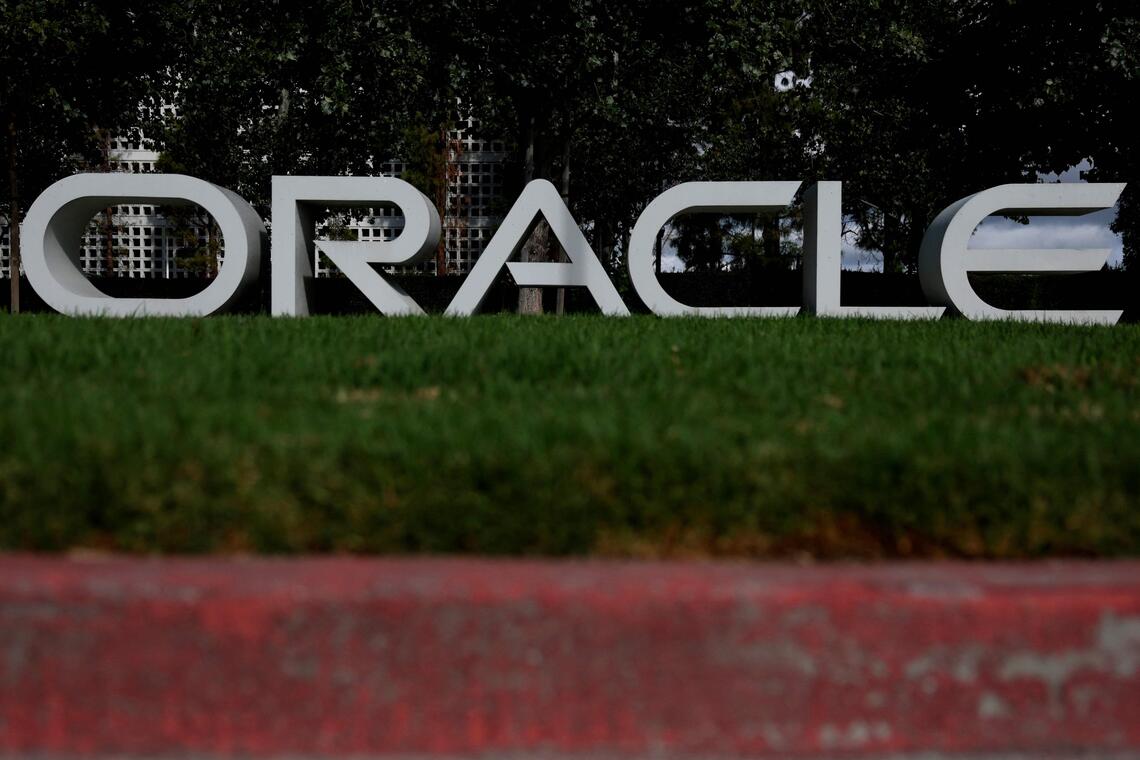NEW YORK – For anyone concerned that artificial intelligence is fuelling a bubble in technology stocks, Oracle has entered the conversation.
Shares of the database software company have soared more than 80 per cent in 2025, the seventh best performance in the S&P 500 Index, as scorching demand for AI computing turbocharges its revenue growth.
The latest leg of the rally came after Oracle projected revenue in its cloud computing business will jump 700 per cent in the next three fiscal years, sending the stock up 36 per cent on Sept 10.
Oracle also has been linked to the Trump administration’s negotiations to keep TikTok operating in the United States.
The company has served as TikTok’s primary cloud infrastructure provider for years.
On Sept 17, the White House extended the deadline for its ban of the Chinese video sharing app until Dec 16 while talks continue.
Oracle shares edged lower on Sept 17, falling 1.9 per cent after two consecutive days of gains.
The stock is now trading around the highest price-to-estimated earnings since the dot.com era at 43 times, making Oracle more expensive than eight of the nine most valuable companies in the S&P 500.
Nvidia, for example, trades at 31 times profits projected over the next 12 months and is expected to have much faster sales growth over that period.
“Investors viewed Oracle as a boring low growth company, and all of a sudden it’s an AI winner,” said director of research at Fulton Breakefield Broenniman Michael Bailey. “But you’ve got a lot of risk. You’re buying the stock now based on hope that we’re going to see massive growth in year four, five and six.”
The long-term nature of Oracle’s anticipated expansion, with the heaviest growth coming several years from now, is a major reason why its stock looks so expensive, as analysts have not adjusted their earnings expectations for the current fiscal year and next.
But looking at profits estimated over the next three years, Oracle’s multiple is a more manageable 25 times – although that is still almost twice the average over the past decade.
“This year is irrelevant, next year is irrelevant, the year after that is more important,” Mr Bailey said. “If you go out a few years, there’s going to be this massive spike in growth. You’ve got to value that today.”
Of course, plenty of investors are comfortable taking a longer-term view with growth stocks.
Two of the most popular examples – Tesla and Palantir Technologies – are priced at more than 180 times earnings projected over the next 12 months, compared with 27 times for the Nasdaq 100.
Even over a three-year horizon, Tesla and Palantir are still very expensive at around 100 times.
But those companies are outliers. Nvidia, perhaps the most popular AI stock that has faced its own valuation scrutiny, is priced at 24 times earnings over the next three years, which is less than Oracle even though its profits are booming right now.
Oracle’s overall sales are projected to rise 17 per cent in the current fiscal year, followed by 22 per cent in 2027 and 42 per cent in 2028, according to the average of analyst estimates compiled by Bloomberg.
Nvidia’s revenue is expected to rise 58 per cent in 2025, followed by 33 per cent and 17 per cent in the next two years.
“The multiple bakes in a very high likelihood that everything Oracle announced comes to fruition,” said Fort Pitt Capital Group chief investment officer Dan Eye. “I’d put us in the camp of being a bit more sceptical.”
Of course, there are inherent risks in relying on expectations for the next 12 months, much less three years.
This is especially true when it comes to AI, which is not a proven moneymaker for most companies beyond providers of cloud computing services and infrastructure.
“The issue isn’t Oracle not getting the business, it’s the end customer – will they get the benefit out of it as fast as the market assumes?” said Value Point Capital principal Sameer Bhasin. “Back in the dot.com era, every time somebody put fibre in the ground, the stock would go up, but they didn’t realise the end customer IRR was negative,” he said, referring to the internal rate of return.
So far, Oracle’s valuation has not spooked Wall Street, where more than 70 per cent of analysts recommend buying the stock.
Of the 47 tracked by Bloomberg, there are 13 hold ratings and no sells. BLOOMBERG
Technology sectorStocks and sharesAI/artificial intelligence

